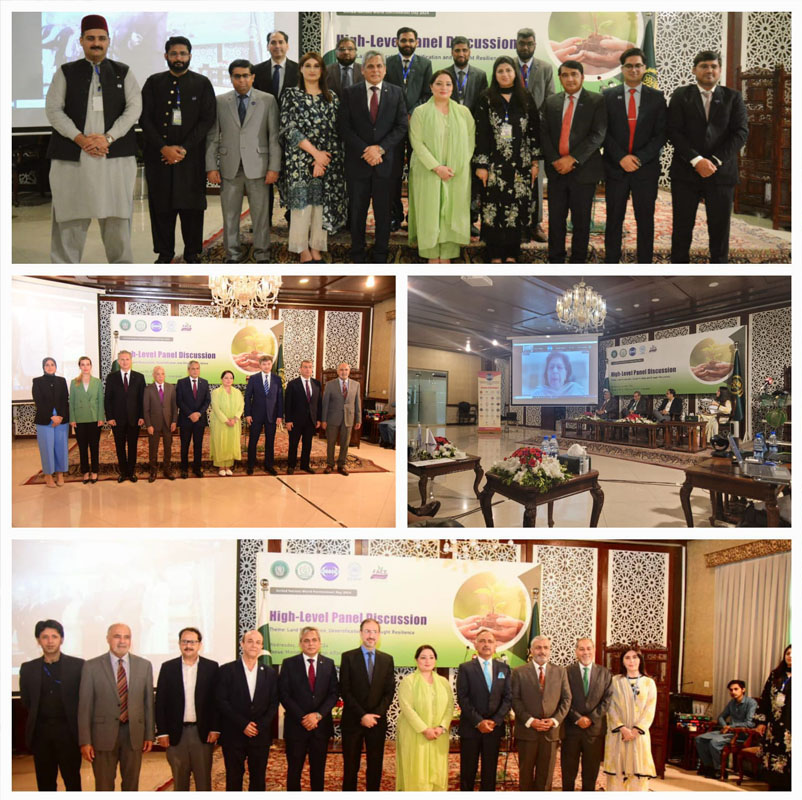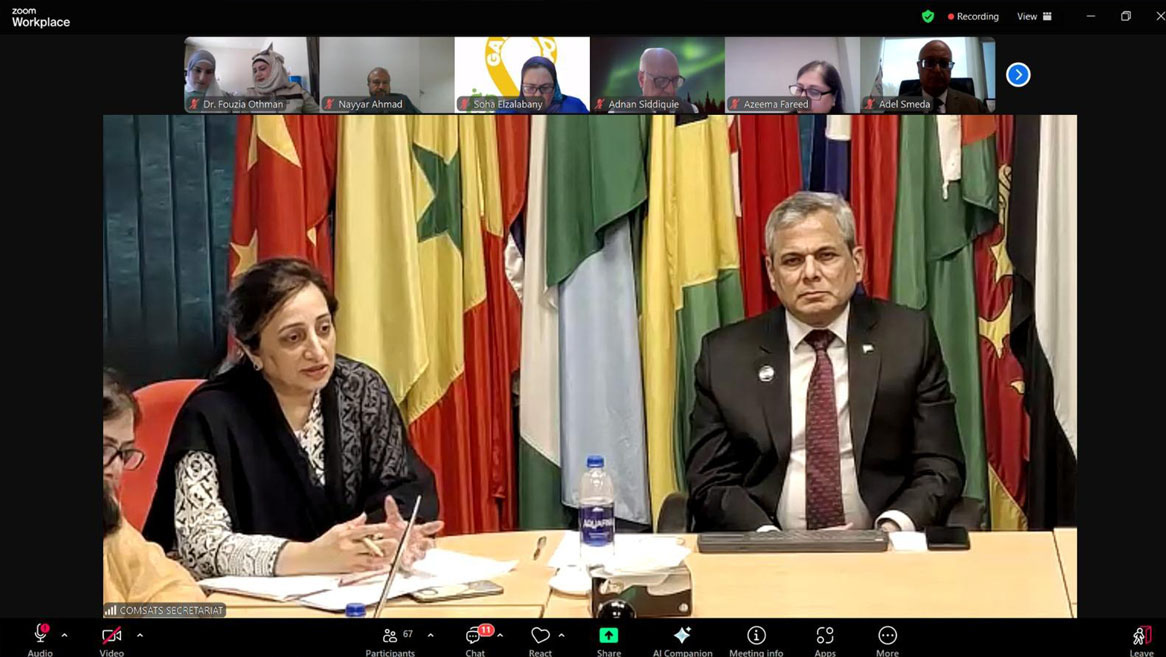The Commission on Science and Technology for Sustainable Development in the South (COMSATS), in collaboration with the Ministry of Climate Change and Environmental Coordination, Ministry of Foreign Affairs, ECO Science Foundation, and Food Security and Agriculture Centre of Excellence (FACE), commemorated the United Nations World Environment Day by holding a High-Level Panel Discussion on 5th June 2024. Ms. Romina Khurshid Alam, Coordinator to Prime Minister on Climate Change and Environmental Coordination, was the Chief Guest.
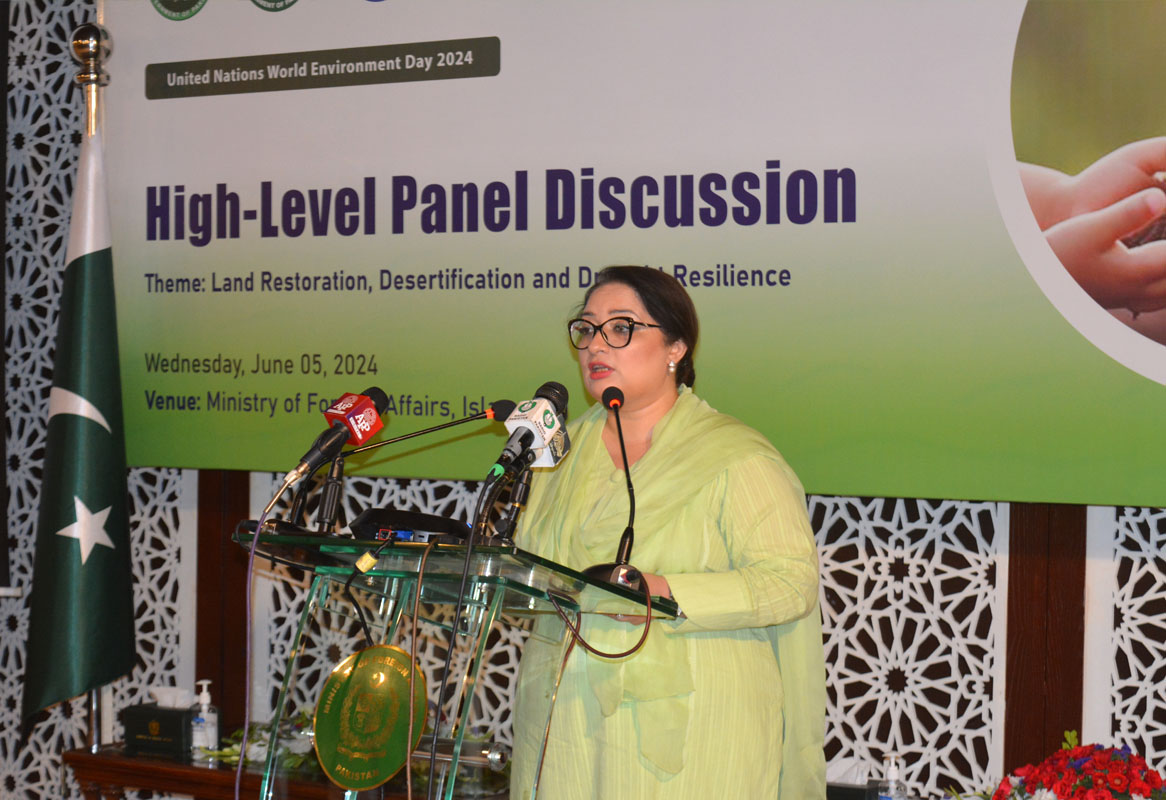
Speaking at the occasion, the Chief Guest Ms. Romina noted that sustainable development can only be achieved through a holistic strategy that addresses the environmental, social, and economic dimensions of land degradation and environmental issues. She highlighted key measures to mitigate degradation and desertification, including pooling resources to invest in S&T, promoting R&D, supporting the efforts of scientists, building capacities of farmers’ community with latest knowledge and skills to implement sustainable practices. She recounted some of the significant initiatives taken by her Government to tackle environmental challenges, including the Living Indus Initiative, and the Recharge Pakistan. The Coordinator underlined the danger posed to the Indus population by Indian relentless construction of dams on rivers allocated to the lower riparian country, Pakistan.
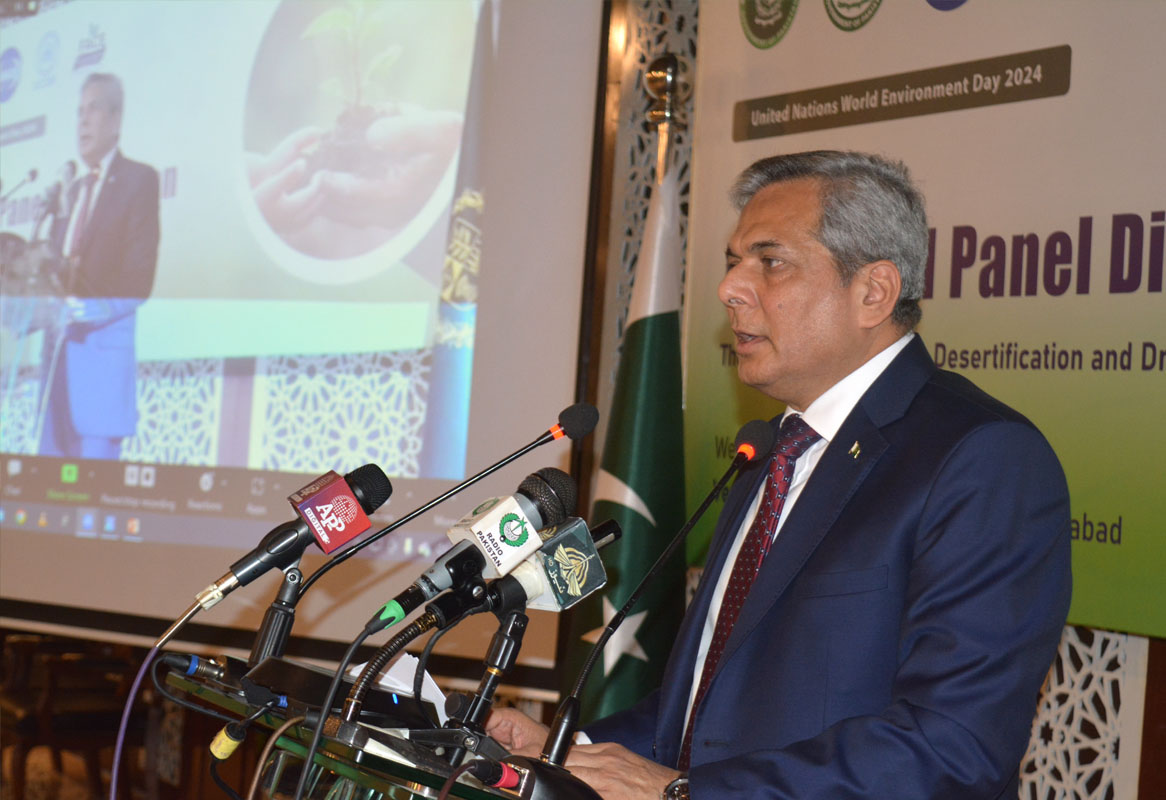
The Executive Director COMSATS, Ambassador Dr. Mohammad Nafees Zakaria, stated that Climate Change, poverty, food security and eliminating hunger are among the intrinsically linked critical social and ecological challenges facing the developing world. It warranted alignment of remedial measures under a coherent policy approach driven by technology-based solutions. COMSATS could play a role to assist countries, he said.
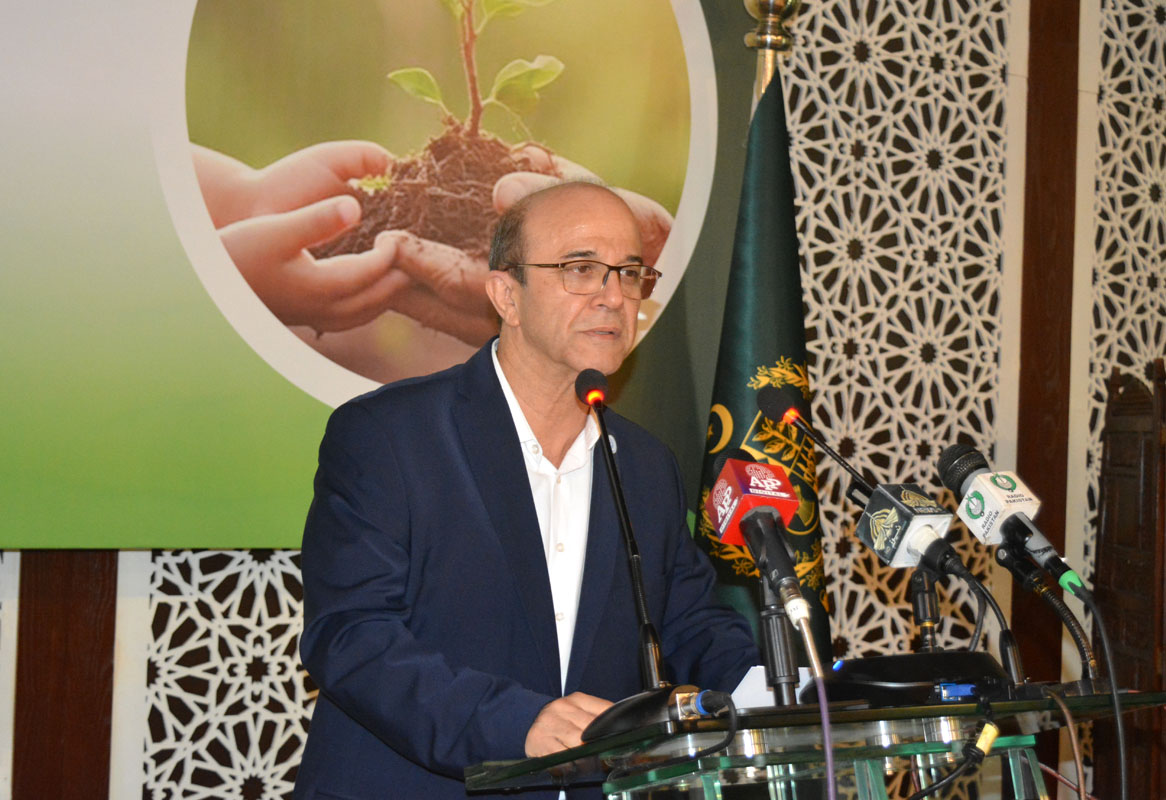
Prof. Seyed Komail Tayebi, President ECO Science Foundation, remarked that Climate Change is not a matter of choice, it is a matter of survival and thus a multipronged approach that adopts innovation and ensures effective resource management is required.
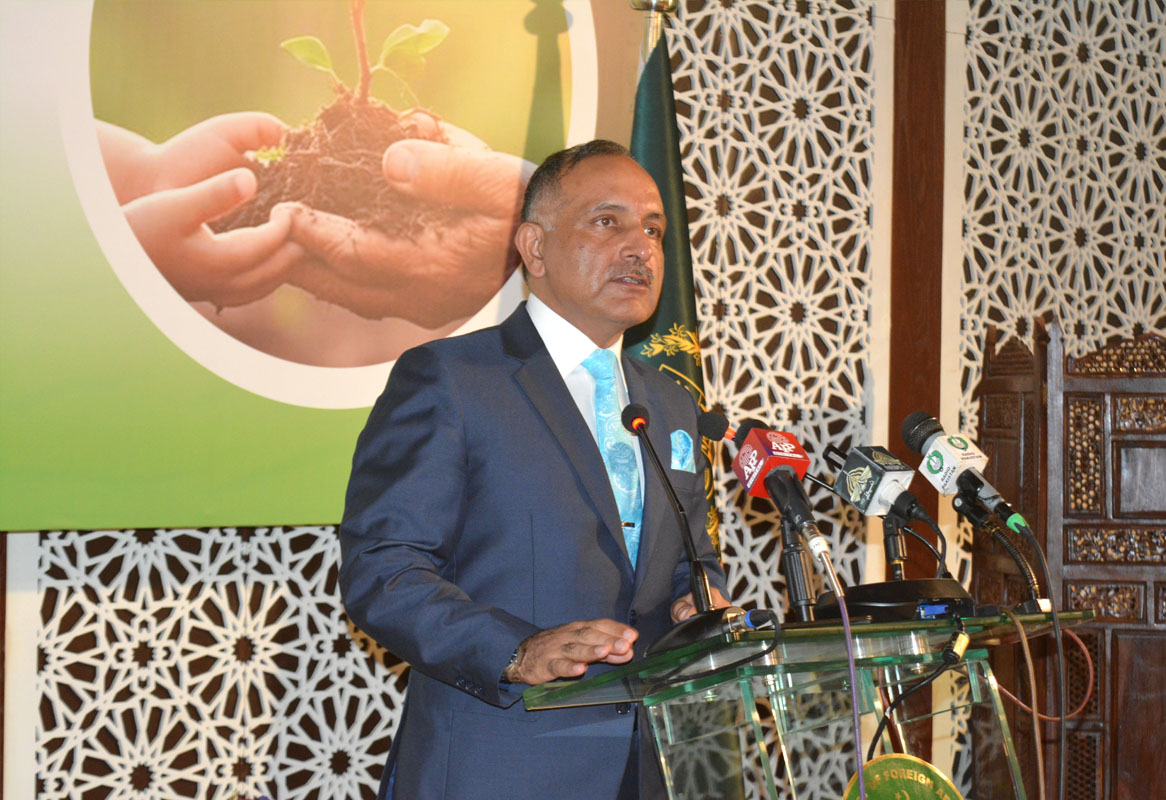
Lt. General Inam Haider, Chairman, National Disaster Management Authority (NDMA), stated that inactivity and inaction viz-a-viz climate change was not an option. He noted that Pakistan is now trying to catch up and meet the global expectations. He said NDMA is using AI and other tech tools to analyze data for disaster management locally and contributing at international forum.
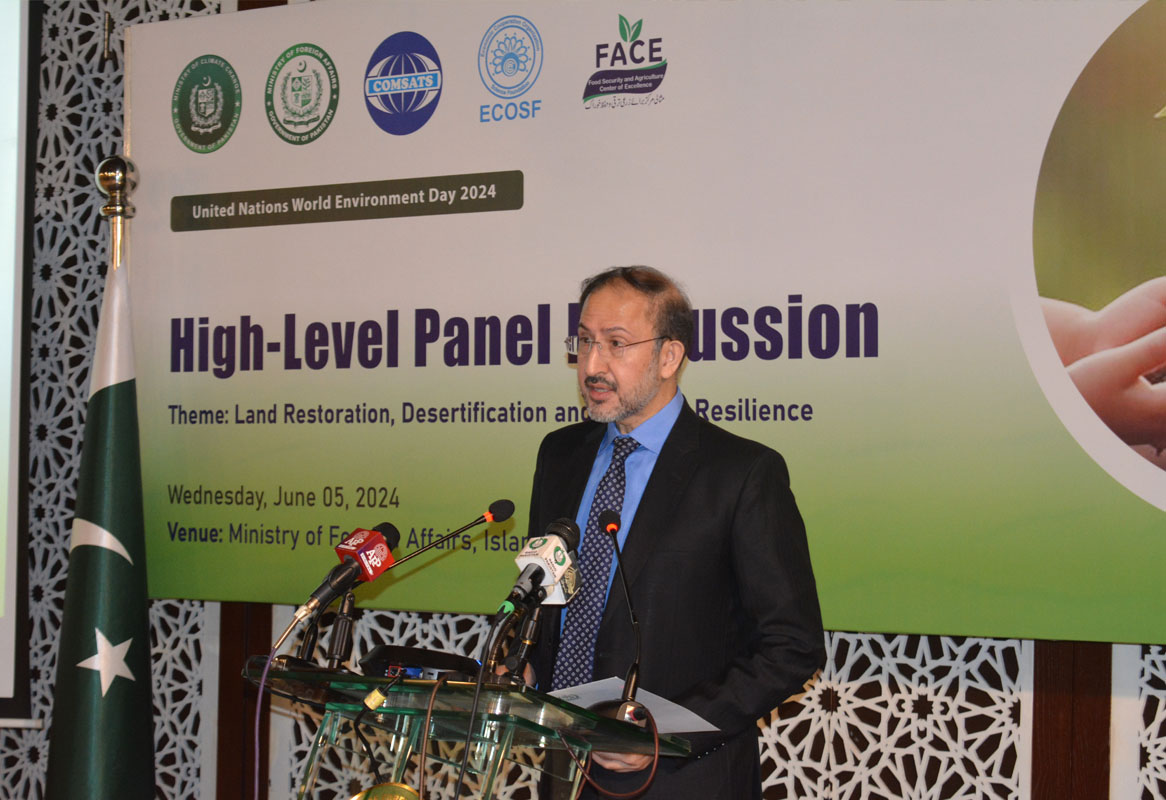
Mr. Syed Haider Shah, Additional Secretary (UN), Ministry of Foreign Affairs noted that window of opportunity is fast closing to make corrective actions. He highlighted that US$100 billion commitment for climate finance to ensure the implementation of climate change actions by developing countries and mitigate the climate change impacts is yet to realize. He proposed enhanced global cooperation, provision of adequate financial support and coordination with stakeholders for balanced adaptation and mitigation of environmental degradation.
A high-level panel discussion was subsequently held. The panelists included Dr. Kemal Güneş, Senior Chief Researcher, Vice President of TÜBİTAK MAM, Türkiye; Ms. Aban Marker Kabraji, Senior Advisor Climate Change and Biodiversity, United Nations Development Cooperation Office (UNDCO); Mr. Bilal Anwar, CEO, National Disaster Risk Management Fund (NDMRF); Cdre (Retd) Baber Bilal, Vice President, National Institute of Maritime Affairs (NIMA); and Dr. Sohail Malik, Technical Team Leader, Climate Resourcing Coordination Centre (CRCC). The panel discussion was held around the topics, restoring large-scale ecosystem, natural capital accounting, channeling financial investment into economic activities enhancing ecosystem assets, addressing the issues of water scarcity and sustainability, integrated land and water management, technology-driven nature-based solutions in promoting sustainable development, role of private sector, and Pakistan’s Living Indus Initiative (LII) as one of the seven UN World Restoration Flagship programmes.
The event was attended by about eighty participants, including Ambassadors and diplomats from Azerbaijan, Egypt, Iran, Jordan, Kazakhstan, Morocco, Syria.
The event helped raise awareness regarding the significance of environmental protection and paved the way for collaboration among various stakeholders in order to develop S&T-based solutions for environmental challenges.

